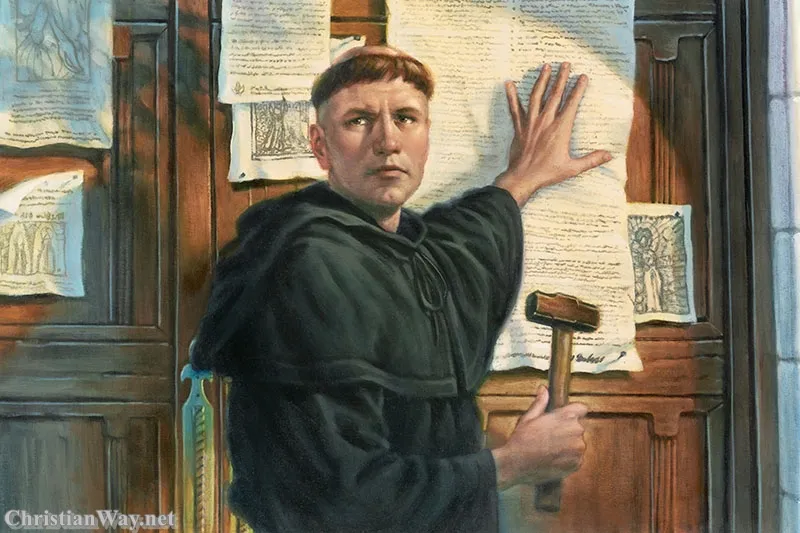Dear friends in Christ,
Across the centuries, the figure of the Virgin Mary has stirred both devotion and reflection in the hearts of Christians. She stands at the very threshold of the Gospel story — a young woman from Nazareth whose “yes” to God opened the door through which salvation entered the world. Yet among the different branches of Christianity, the way believers speak of and relate to Mary varies.
For many within the Protestant tradition, the Virgin Mary is honored deeply as the mother of Jesus — the faithful servant who received the Word of God with humility and obedience. She is not seen as an intercessor or object of veneration in the same way she is within Catholic and Orthodox practice, but as a powerful example of what it means to trust God completely. Her role is not diminished but redirected — away from exaltation toward imitation, as believers look to her as a model of faith responding to grace.

In this reflection, we will explore how Protestants understand the Virgin Mary, how Scripture shapes that view, and what her example continues to teach all Christians about faith, humility, and the obedience of love.
Mary in Scripture: The Humble Servant of the Lord
When the angel Gabriel came to Mary and announced that she would bear the Son of God, her response was not one of fear or pride, but of simple trust:
“Behold, I am the handmaid of the Lord; let it be to me according to your word.” — Luke 1:38
This moment — often called the Annunciation — reveals the essence of Mary’s greatness. For Protestants, Mary’s significance begins and ends with her faithful surrender to God’s will. She is the chosen vessel of divine grace, not by her own merit, but by God’s initiative.
The Gospel of Luke presents Mary as a woman of deep faith who treasures the mysteries of God in her heart. She sings the Magnificat — a song of praise that exalts God’s mercy and justice:
“My soul magnifies the Lord,
and my spirit rejoices in God my Savior.” — Luke 1:46–47
This song expresses the heart of Protestant theology: salvation belongs to God alone. Mary herself rejoices in her Savior, recognizing that she, too, lives by grace.
Mary’s Role in the Story of Redemption
Protestants affirm that Mary’s role in salvation history is unique and unrepeatable. She bore the incarnate Word — Jesus Christ, true God and true man. Her obedience was instrumental in the unfolding of God’s redemptive plan.
Yet, Protestants are careful to distinguish between honoring Mary and attributing to her a divine or mediating role. Scripture teaches that there is “one mediator between God and man — the man Christ Jesus” (1 Timothy 2:5). For this reason, Protestant theology does not include prayers to Mary or veneration of her as intercessor.
Still, many Protestant theologians and reformers held Mary in great respect. Martin Luther, the German Reformer, wrote:
“Mary is the Mother of Jesus and the Mother of us all when we believe in her Son. She is the most blessed among women.”
Luther, Calvin, and other early Reformers did not reject the honor due to Mary — they rejected only the excesses that, in their view, overshadowed Christ’s unique mediating role. Their reverence for Mary was Christ-centered: she is blessed because she bore the Savior and believed God’s promise.
The Virgin Birth: A Shared Article of Faith
One of the central affirmations that unites all Christian traditions — Catholic, Orthodox, and Protestant alike — is belief in the Virgin Birth.
The Apostles’ Creed proclaims: “Conceived by the Holy Spirit, born of the Virgin Mary.” This confession is deeply rooted in Scripture:
“The virgin will conceive and give birth to a son, and they will call him Immanuel” — which means “God with us.” — Matthew 1:23
For Protestants, the Virgin Birth is not merely a miracle of biology but a profound theological truth. It testifies to God’s direct intervention in human history — that salvation is entirely God’s work, not man’s. The humanity of Christ is born from Mary; His divinity comes from the Holy Spirit.
Mary’s virginity, therefore, is not just about physical purity but about spiritual readiness — a symbol of the soul that receives God’s word in faith.
Mary as an Example of Faith and Discipleship
In Protestant spirituality, Mary’s enduring importance lies in her faith. She believed what God said, even when she could not understand how it would come to pass.
In this, she becomes the first disciple of Christ — hearing the Word, receiving it, and allowing it to shape her entire life.
When Jesus began His ministry, Mary followed Him, not as one who claimed privilege, but as one who listened and pondered. She appears at the wedding at Cana, where she simply says to the servants:
“Do whatever He tells you.” — John 2:5
This is the heart of Christian obedience — to listen to Christ and act upon His word. Protestants see in Mary’s example a model for all believers: not to draw attention to herself but to direct every heart toward Jesus.
The Cross: Mary’s Silent Witness
At the foot of the Cross, Mary stands in sorrow and strength. The Gospel of John tells us:
“When Jesus saw His mother there, and the disciple whom He loved standing nearby, He said to her, ‘Woman, behold your son.’ Then He said to the disciple, ‘Behold your mother.’” — John 19:26–27
Here, Mary’s faith reaches its deepest expression. She does not speak. She simply remains. The one she bore in love now dies in obedience to the Father. She cannot save Him — but she believes still in the God who saves.
For Protestants, this moment encapsulates what true discipleship means: to remain faithful even when the promise seems broken, to trust God even when the cross overshadows hope.
Mary becomes, in that moment, the symbol of the Church itself — steadfast beneath the Cross, trusting in the resurrection to come.
Protestant Perspectives on Marian Doctrine
Throughout history, certain Marian doctrines have distinguished Protestant belief from that of other Christian traditions.
- The Immaculate Conception — Protestants generally do not accept this doctrine, which holds that Mary was conceived without original sin. Instead, they affirm that Mary, like all people, was saved by grace through faith in Christ.
- The Assumption of Mary — The belief that Mary was taken bodily into heaven is not part of Protestant teaching, as it is not explicitly stated in Scripture.
- Mary as Mediatrix or Co-Redemptrix — Protestants firmly maintain that Jesus Christ alone is mediator and redeemer. Mary’s role is honored but not elevated to intercession or mediation.
However, rejecting these doctrines does not mean rejecting Mary. On the contrary, Protestants continue to see her as “blessed among women” (Luke 1:42) and as an enduring witness to God’s faithfulness.
Mary and the Reformation: Honoring Without Idolizing
During the Reformation, reformers sought to restore Christ to the center of Christian devotion. Yet they did not dismiss Mary.
Martin Luther wrote extensively on the Magnificat, calling Mary “a miracle of God’s grace.” John Wesley, founder of Methodism, included the phrase “born of the Virgin Mary” in his sermons and hymns as essential to Christian faith.
What they opposed was not love for Mary, but the tendency to turn her into an object of worship. They wanted believers to look through Mary, not to her — to see in her the pattern of humble faith that always points back to Christ.
In this way, Protestant reverence for Mary is quiet and biblical — rooted in gratitude, not ritual. She is the mother of the Savior, the first believer, and the witness of God’s redeeming work.
The Virgin Mary in Protestant Devotional Life
While formal prayers to Mary are not part of Protestant worship, her story remains central to Scripture readings, hymns, and Christmas meditations.
Hymns such as “Once in Royal David’s City” or “What Child Is This?” honor her faith and tenderness as mother of the Lord. Advent and Christmas sermons often draw from Mary’s Magnificat, reminding believers of God’s mercy that lifts the lowly and fills the hungry with good things.
In personal faith, many Protestants reflect on Mary’s example as a guide for prayer and obedience — learning from her humility, courage, and willingness to serve God’s purpose.
Her silence in Scripture speaks loudly to a world filled with noise: that holiness often grows not in self-promotion but in quiet trust.
A Shared Love Across Christian Traditions
Despite theological differences, Christians of all traditions find in Mary a source of unity rather than division.
She embodies the truth that salvation begins with God’s call and our response. Whether one prays to her, honors her, or simply learns from her, Mary remains a living reminder that faith is not about power but surrender.
In Mary, the Church recognizes what it means to receive Christ fully — to make room in the human heart for the divine Word.
Reflect and Pray
The Virgin Mary, Mother of Jesus, remains one of the most beautiful figures in the Christian story — not because she draws attention to herself, but because her whole life points to Christ.
Her faith invites us to trust when the path is unclear. Her humility reminds us that greatness in God’s kingdom comes through service. Her perseverance at the Cross teaches us that love endures even in sorrow.
May all Christians, Protestant and otherwise, learn from Mary how to say with pure hearts: “Let it be to me according to Your word.”
Let us pray:
Lord God, who chose the humble Virgin to bear Your eternal Word,
teach us to walk in faith as she did —
to listen, to trust, and to obey.
May our souls magnify You in all we do,
and may our hearts always rejoice in Jesus, our Savior and Lord.
Amen.
— Fr. John Matthew, for Christian Way





